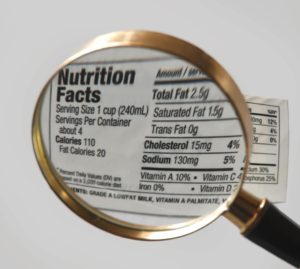 When it comes to heart health, saturated fat is often ill-advised. This is because saturated fat contributes to artery plaque build-up and cholesterol, which leads to clogged arteries and ups the risk of heart disease, heart attack, and stroke. But not all saturated fat is equal.
When it comes to heart health, saturated fat is often ill-advised. This is because saturated fat contributes to artery plaque build-up and cholesterol, which leads to clogged arteries and ups the risk of heart disease, heart attack, and stroke. But not all saturated fat is equal.
Saturated fat in our diet typically comes from consuming meat. This type of saturated fat is compiled of palmitic and stearic acid – composed of 16 or more carbon atoms (longer-chain saturated fat). Research suggests consuming saturated fat from plant sources consisted of 14 or fewer carbon atoms (shorter-chain saturated fat) may reduce the risk of a heart attack. Shorter-chain saturated fat can be found in many dairy products.
Advertisement
Lead investigator Ivonne Sluijs explained, “Our analysis of the diets of large groups of individuals in two countries over time shows that the type of saturated fats we consume could affect our cardiovascular health.”
The researchers explored if varying length saturated fat was associated with a higher risk of heart attack. Data was taken from 75,000 people, of which nearly 3,500 experienced a heart attack.
Dr. Sluijs added, “We found that eating relatively little of the longer chained saturated fatty acids and consuming plant-based proteins instead was associated with a lowered risk. Substitution of those saturated fats with other energy sources such as carbohydrates did not affect the risk to develop myocardial infarction.” The most commonly consumed saturated fats have 16 atoms or more and less likely consumed are shorter-length saturated fat which is found in dairy.
For decades, saturated fat has been associated with a higher risk of heart attack, as it can clog the arteries causing the heart to work harder. This recent study does lend evidence to this but also sheds light on different types of saturated fat. You may not need to wipe your diet clean of saturated fat altogether to reduce your risk of heart attack.
Advertisement
“Our study only allowed us to draw conclusions on the level of associations between saturated fatty acids and the development of myocardial infarction. We do not know whether those fatty acids are actually the cause of differences between the occurrences of myocardial infarction we observed. To further explore this, we need experiments in which the consumption of saturated fatty acids is more controlled and, for instance, compared with consumption of unsaturated fatty acids,” Dr. Sluijs continued.
A person’s diet should be balanced and involve a high intake of fruits, vegetables, and whole grains, as opposed to red meats. For this reason, the Mediterranean diet has been hailed for its benefits to heart health.
Also read:
- Natural ways to improve heart rate and get your heart pumping
- Heart attack symptoms in women: Risk Factors when at 40, 50, 60
- Heart attack recovery: Diet and exercise after heart attack
